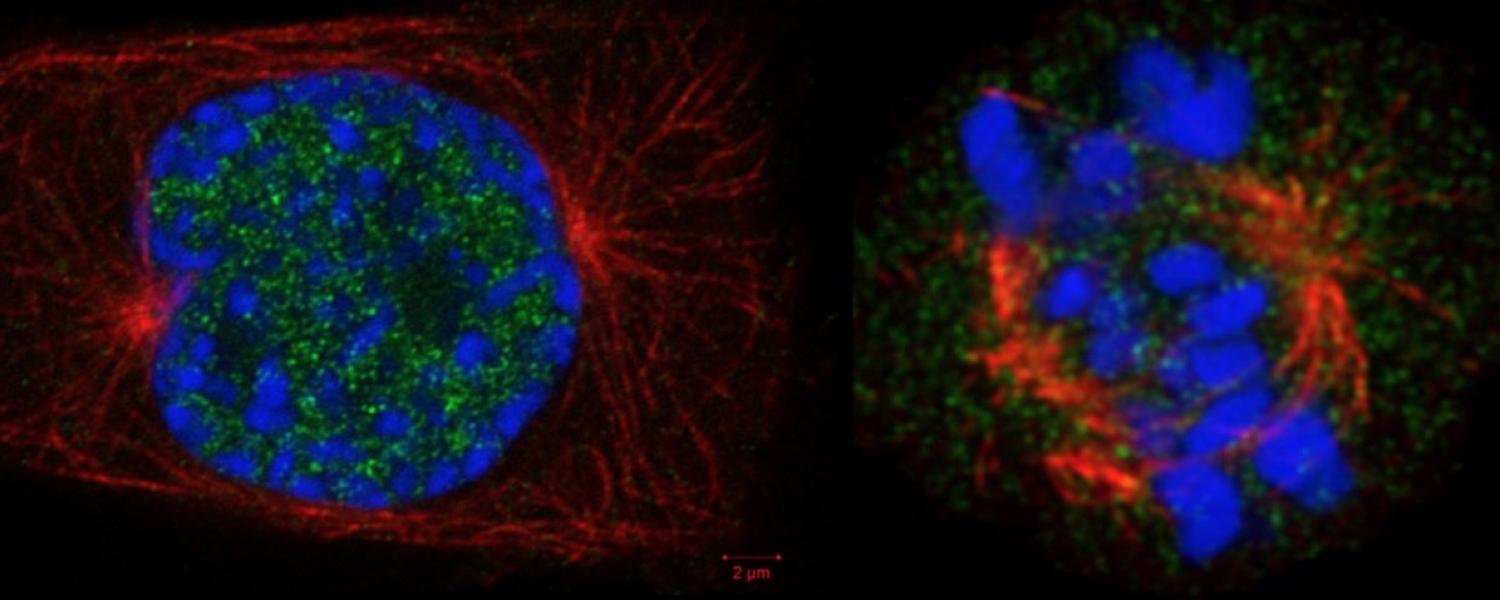
Program overview
Graduate study in Biological Sciences puts students on the front lines of discovery. Doctoral students design, conduct and analyze original research; they develop rigorous expertise in everything from foundational theory and the study of evolution to cutting-edge research methodologies as they investigate a broad range of biological problems ranging from the molecular level to the biosphere. Degrees are offered in four integrated areas: biochemistry; ecology and evolutionary biology; integrative cell biology; and microbiology. The program takes four to five years, with funding available through sources such as scholarships, teaching assistantships, research assistantships, and supervisor's research grants.
Completing this program
-
Research Seminar: Related to supervisor interest, and may include biochemistry, cell biology, ecology and evolutionary biology or microbiology.
-
Candidacy: Students will prepare a research proposal or essay, followed by an oral exam in their field of research expertise.
-
Additional Courses: Topics may cover biology of laboratory animals, theory and lab methods, statistical methods, recent advances and Darwin.
-
Thesis: Students will propose, write and successfully defend a research thesis.
Specializations
- Biochemistry
- Biophysical Chemistry
- Cell Biology
- Developmental Biology
- Ecology
- Environmental Biology
- Evolutionary Biology
- Molecular Microbiology
- Physiology
- Structural Biology
- Host-Pathogen Interactions
- Energy and Environmental Systems
Outcomes
Professor, biologist, teacher, consultant, scientist (agricultural/forestry breeding, process development, environmental), data analyst, biotechnologist, genetic counsellor, manager (lab, project, clinic, territory, resource), science writer, research technician, bioscience/biotechnology business.
A PhD in biological sciences is usually considered a final degree.
Virtual Tour
Explore the University of Calgary (UCalgary) from anywhere. Experience all that UCalgary has to offer for your graduate student journey without physically being on campus. Discover the buildings, student services and available programs all from your preferred device.
-
 Accepting InquiriesSingle Cell Genomics, Tissue Regeneration, Cancer, Molecular Biology
Accepting InquiriesSingle Cell Genomics, Tissue Regeneration, Cancer, Molecular Biology -
 UnavailableBehavioural and physiological ecology, conservation biology
UnavailableBehavioural and physiological ecology, conservation biology -
Accepting InquiriesEcotoxicology, One Health, Environmental contaminants, Stable isotope analyses, Food webs
-
 Accepting InquiriesDynamics of locomotion
Accepting InquiriesDynamics of locomotion -
 Seeking StudentsMicrobiome , Inflammation and neurodegeneration, Prenatal alcohol exposure/Fetal Alcohol Spectrum Disorder (FASD), Germ-free models, Indigenous community partnerships (health focus)
Seeking StudentsMicrobiome , Inflammation and neurodegeneration, Prenatal alcohol exposure/Fetal Alcohol Spectrum Disorder (FASD), Germ-free models, Indigenous community partnerships (health focus) -
 Accepting InquiriesEukaryotic Gene Expression and Regulation
Accepting InquiriesEukaryotic Gene Expression and Regulation -
 UnavailableProteomics, proteases, systems biology, inflammation, immunity
UnavailableProteomics, proteases, systems biology, inflammation, immunity -
 Accepting InquiriesMicrobial Ecology / Environmental Microbiology, Biotechnology
Accepting InquiriesMicrobial Ecology / Environmental Microbiology, Biotechnology -
 Seeking StudentsComputational Biophysics, Molecular Simulation, Machine Learning, DNA/RNA nanotechnology, Nonequilibrium Physics, Molecular Machines
Seeking StudentsComputational Biophysics, Molecular Simulation, Machine Learning, DNA/RNA nanotechnology, Nonequilibrium Physics, Molecular Machines -
 Accepting InquiriesPlant Metabolic Biochemistry
Accepting InquiriesPlant Metabolic Biochemistry
Admission requirements
GPA
A minimum of 3.2 GPA on a 4.0 point system, over the past two years of full-time study (a minimum of 10 full-course equivalents or 60 units) of the undergraduate degree.
Minimum education
Completion of a Master of Science program recognized by the Faculty of Graduate Studies. Exceptional students may apply to a PhD program without a Master of Science recognized by the Faculty of Graduate Studies.
Work samples
None
Documents
A concise statement outlining the applicant's research interests and reasons for wishing to attend the University of Calgary
Reference letters
Three academic reference letters along with the required reference form.
Test scores
None
English language proficiency
An applicant whose primary language is not English may fulfill the English language proficiency requirement in one of the following ways:
- Test of English as a Foreign Language (TOEFL ibt) score of 105.
- International English Language Testing System (IELTS) score of 7.5 (minimum of 6.0 in each section)
- Pearson Test of English (PTE) score of 75, or higher (Academic version).
- Canadian Academic English Language test (CAEL) score of 70 (minimum 70 in each section)
- Academic Communication Certificate (ACC) score of A- in each course.
- Cambridge C1 Advanced or Cambridge C2 Proficiency minimum score of 200.
- Duolingo English Test and obtaining a minimum score of 145* (with no sub-score below 125*).
Deadlines
For admission on September 1
- Canadian and permanent resident (students with Canadian or U.S. transcripts)- apply by June 1
- International (students with international transcripts)- apply by May 1
For admission on January 1
- Canadian and permanent resident (students with Canadian or U.S. transcripts)- apply by Oct. 1
- International (students with international transcripts)- apply by Sept. 1
For admission on May 1
- Canadian and permanent resident (students with Canadian or U.S. transcripts)- apply by March 1
- International (students with international transcripts)- apply by Jan. 1
If you're not a Canadian or permanent resident, or if you have international credentials, make sure to learn about international requirements
Learn more about this program
Related programs
If you're interested in this program, you might want to explore other UCalgary programs.
